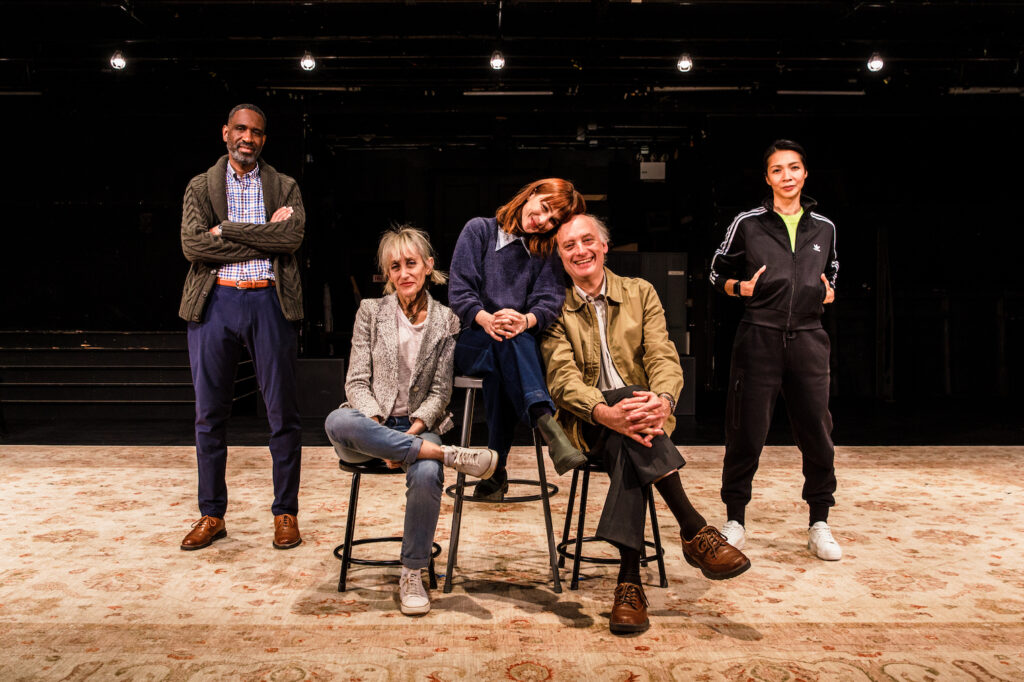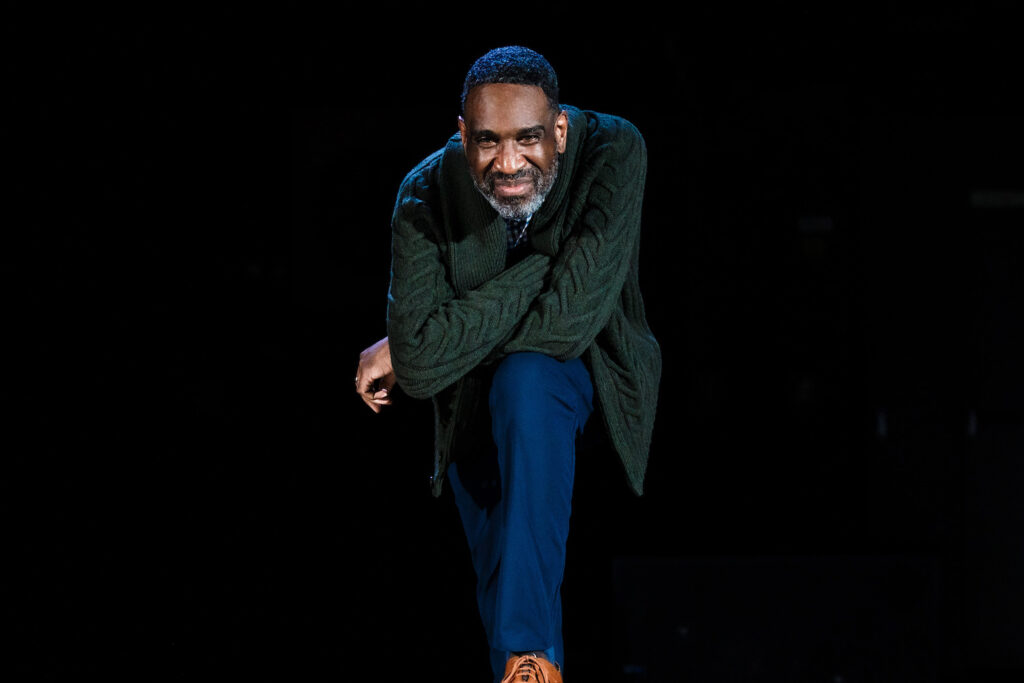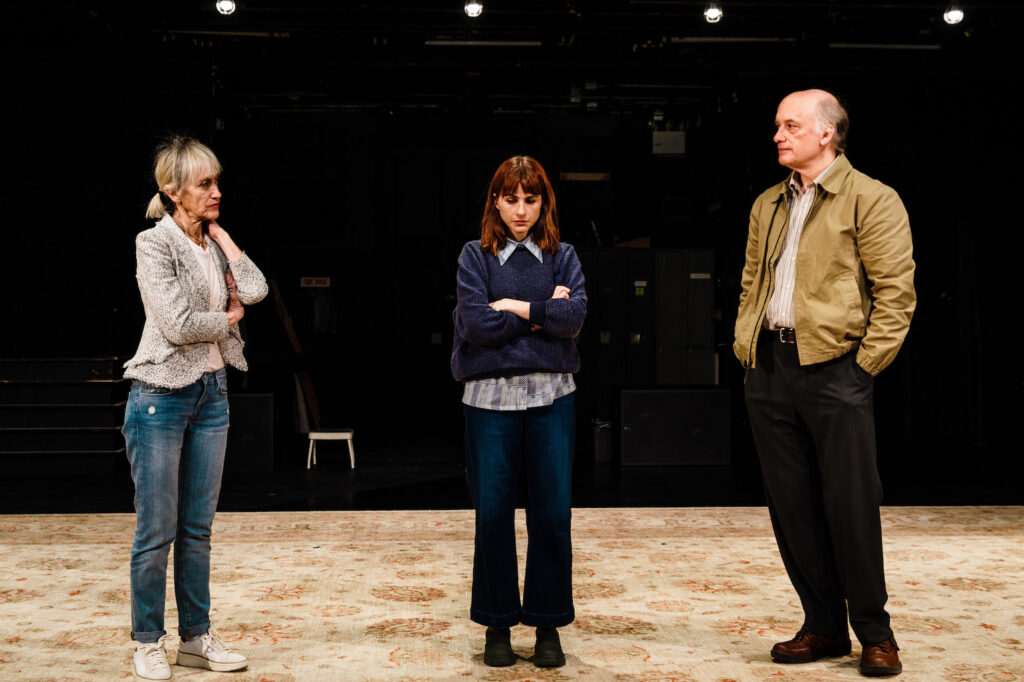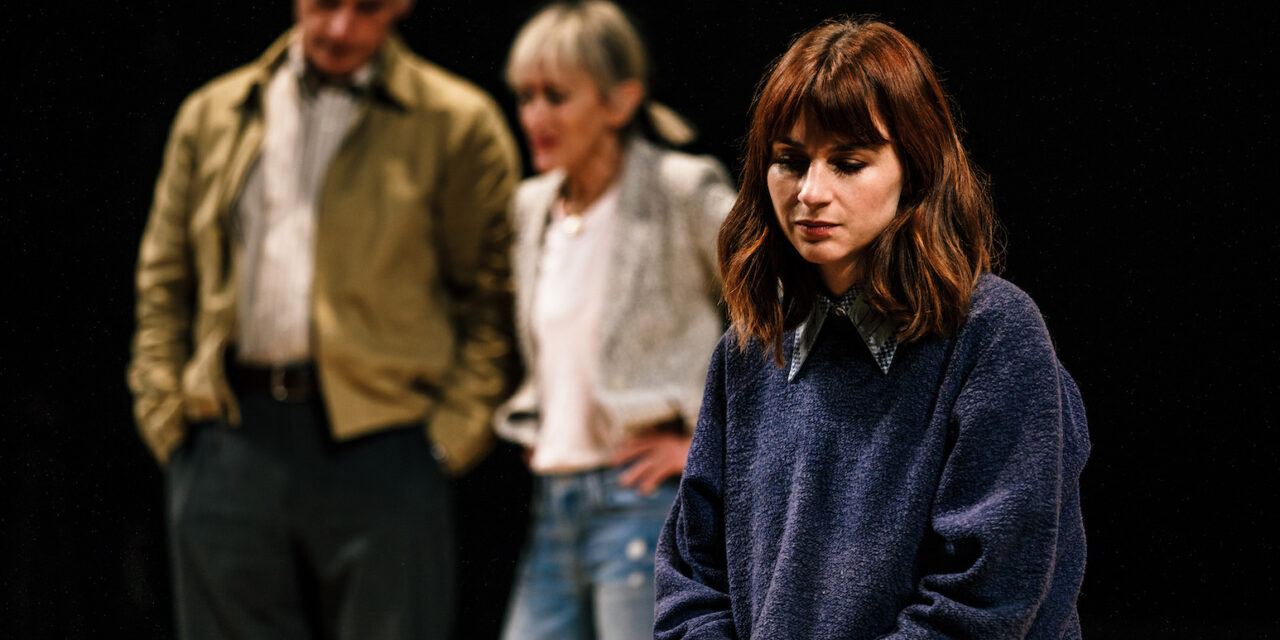By Carole Di Tosti . . .
Sometimes the inevitable is right before our eyes. However, if we don’t choose to acknowledge its eventuality, when it happens can we really say we didn’t know anything? In Emily Feldman’s world premiere, The Best We Could (a family tragedy)—directed by Daniel Aukin and presented by Manhattan Theatre Club at New York City Center Stage I—a mother, daughter and father avoid confronting the issues which inevitably undermine their lives and bring tragedy.
By the time the truth arrives and the secrets are exposed, it is too late to forestall the inevitable. The default response becomes the one referenced in the play’s title, “we did the best we could.” However, Feldman’s work cleverly presents this theme, related to all human experience and interaction, with irony. Is “the best we could” good enough? Or are the characters and, by extension us if we identify with this dysfunctional family, at fault?

Feldman’s unspooling of this family’s tragedy is nonlinear, fluidly dynamic and unconventional. The playwright suspends the space-time continuum and suggests that the action takes place in the imagination.
Auckin directs the actors on a bare stage without spectacle, elaborate set designs or props. There is no curtain to hide the stage back wall, and when the actors are not portraying their characters in specific scenes, they sit or stand on the fringes near piled-up theatrical equipment, outside the playing area. There, they watch and wait for their cues which are given by anonymous narrator Maps (Maureen Sabastian) who guides the play’s momentum and sometimes portrays characters who emerge in the story.
The minimalistic “design” includes a large rug that defines the playing area. The stylization is symbolic, structurally profound and conceptual. It is our perception, our imagination, which manifests the car, rooms in the family’s modest three-bedroom house, the Grand Canyon, Mount Rushmore, the Corn Palace of Mitchell, South Dakota, a restaurant, the gym, and other places in the family story.


Some of these are places Lou (Frank Wood) and daughter Ella (Aya Cash) visit on their trip to bring home their newly adopted dog, Candy (as a comfort to replace Brandy, their dog who has died). Other references take place in their family home, which Peg and Lou discuss selling as a means of downsizing and saving money since Ella, who is thirty-six, doesn’t live with them.
During their father-daughter road trip other scenes/conversations intrude, like memories, which provide pieces of the puzzle and form the anatomy of their story and suggest clues about how the family gradually shattered and continues to shatter without their acknowledging it. For example, there’s mom Peg’s (Constance Shulman) phone conversation with Ella, who is out in LA. They discuss how Brandy’s death devastated Lou. In another conversation flashback, Peg strongly insists that Ella must accompany her father on a road trip to pick up the new dog from the rescue shelter, so Lou won’t drive the long distance alone. In another conversational snippet, Peg suggests Lou will be happy to learn about Ella’s meeting with her publisher about her book.
There are conversations friend Marc (Brian D. Coats) has with Lou about getting another job in his field since Marc is in a position to hire him. These conversations are interspersed between the road trip and flashbacks of Peg and Lou during which Peg harangues Lou about connecting with the many friends he says he has so they can hook him up with another job. Additionally, though Peg is not enamored of moving— which it will require—there is the possibility that Lou might be able to work with Marc who has uprooted his family for his new job. Various flashback vignettes—prompted by the character Maps—guide the characters to disclose what happened during the father-daughter road trip. Bits and pieces of information are revealed, solidifying the family portrait.


Feldman’s play unfolds like layered memory flashbacks do, when one attempts to figure out how a disaster occurred and whether or not it could have been avoided. Maps imprints the mysterious journey, which meanders to its heartbreaking conclusion and discloses themes that resonate with currency.
Throughout the vignettes, some of whose conversations are humorous, the dialogue leaps back and forth in time. Eventually, the road trip ends and Lou and Ella arrive with Candy at home. By this point we’ve become wedded to this family and engrossed in determining their sub rosa emotional underpinnings. However, Feldman presents the most important sections of the puzzle in the last minutes of her play. And after the portrait is complete, we consider: is it too presumptuous to believe that in their place, we might have behaved differently?
The director and the ensemble’s fine work raises these questions whose answers are uncertain. Nevertheless, by the conclusion the superb acting, well-crafted dialogue and excellent staging have drawn us in to understand how this particular family gradually, metaphorically “falls off a cliff.” Importantly, we understand the overriding theme that is a siren call. Do not be lured into oblivion, which lulls one to ignore the signs and secrets that destroy.
The Best we Could shines with profound complexity, moment and powerful performances by an exceptional ensemble, well shepherded by Daniel Aukin. Kudos to the creative team who brought Aukin’s vision to life.
The Best We Could. Through March 26 at MTC at New York City Center – Stage I (131 West 55th Street, between Sixth and Seventh Avenues). www.manhattantheatreclub.com
Photos: Marc J. Franklin
Cover photo: Frank Wood, Constance Shulman, Aya Cash


















